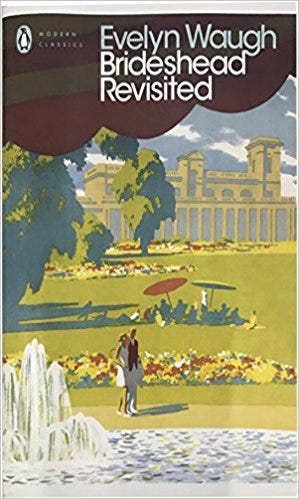Woohoo, round 2!
The weather is crap (although weirdly, I quite enjoy an evening of atmospheric mizzle), the days are dark, we all need some things to cheer us up. For me, this largely involves carbs and hot baths, with a healthy side-order of cinematic escapism. Don’t say I haven’t warned you.
Books
My parents lent me their copy of Follow the Money (Paul Johnson) which is a pretty accessible deep dive into the way we’re all taxed, and how government then spends these taxes. Truly fascinating (especially if you’re a policy wonk like me) and depressing in equal parts, but a great way to learn more about the weird origins of our tax system, which taxes actually raise significant sums of money, who ends up paying the most tax, and how the system needs to change.
I also enjoyed Oh, Sister by Jodie Chapman, which explores the lives of three women who belong to a religious organisation called The Disciples of the Lost Days (a thinly disguised Jehovah’s Witness style religion), and their struggles to fit their lived experiences within a stiflingly narrow doctrine that has been central to their lives and sense of self-hood up until this point. To say I enjoyed it is probably a little glib, but there are notes of quiet optimism within each story.
Saltburn, Brideshead and the British obsession with class
Right, on to the good stuff. I took myself off to see Saltburn last weekend. It’s very fun and I absolutely recommend it - but it’s not perfect. I certainly felt it was pitched as an ‘eat the rich’ version of Brideshead Revisited / Downton Abbey and I was *here* for it. But it’s not. The ‘rich’ - the Cattons - are beautiful, eccentric, sometimes vapid but ultimately well-meaning, and full of acerbic one-liners. They’re portrayed as the benevolent rich, wafting through life in a fairy-tale world of privilege (with the odd problem of course - after all, it’s set in 2006 so nothing can be too perfect).
The rich have it hard
And ultimately, this is where the film begins to fall down. Because if we don’t despise the characters at the heart of it, the elites who have it all, then the dark twists and turns that follow become somewhat hollow. It’s a fun thriller which subverts our expectations, but this could have been a film which actually says something about class. Instead, of eating the rich, it merely nibbles at them and gulps down whole the aspirational middle classes. I never quite figured out what Oliver’s motivation was in this film: what part of the Cattons’ gilded lives he wanted, exactly. Did he want to be part of the club, to be accepted? Did he simply want the material world they lived in? What motivated him? Saltburn is billed as a satire, but a satire of what? It’s certainly not a satire about the rich (this Dazed piece explores this a bit more).
If you haven’t read (or watched) Brideshead Revisited, you absolutely should. It’s the OG country house novel, and it’s much more interesting and complex than Saltburn. The characters are much better fleshed out, there are more interesting themes (Catholicism, for example, runs through the novel), better descriptions of the eponymous house which is so integral to the story, and Waugh has more to say about the aristocracy: written in 1945, he himself declared it was written out of nostalgia for what he perceived to be a dying age. On re-reading it in the 1950s and 1960s, he at various points declared he found his portrayal of aristocratic life ‘distasteful’ and that he had been ‘preaching a panegyric over an empty coffin’. But at least he could tell you what he set out to create, even if he did later regret it.
Class remains central to British society, whether or not we care to admit it. The golden age of social mobility, it is not. Where you’re born, how much your parents earn (and what jobs they do), where you go to school: these are all huge factors in shaping our future lives and successes. In a world where wages are stagnant and house prices are sky high, the only way many of our generation will be able to buy property is through inheritance - which is, of course, inherently unfair. Emerald Fennell herself is a product of a hugely upper-class middle background and has no doubt benefited from the wealth and connections of her family when it came to launching her career in the movies.
Beyond the impact of class economically, we’re also obsessed with it socially and culturally. Class feeds in to so much of how we interact with the world around us, with how people instantly judge and categorise us when we meet. Class boundaries have certainly blurred and shifted in the past 50 years or so (for example, the number of people who identify as working class has shot up compared to the number of people who would actually economically fall into the category of ‘working class’), but that doesn’t mean they’ve disappeared - far from it.
There’s a lot to talk about when it comes to Britain and class: it’s a shame that Fennell doesn’t really bother.
Etc
On a perfect, crisp, sunny winter’s afternoon I enjoyed strolling along the Thames to the Tate Britain’s Women in Revolt! - two favourites from it were discovering the work of the See Red Women’s Workshop, which was run by a feminist collective between 1974 and 1990. You can see more of their amazing posters here but this one of Maggie Thatcher was on display in the exhibition. Apparently they wrote to the PM’s office saying they were fans and requesting a high quality poster - and her office willingly obliged.
Tough! (1979)
The other very cool thing was Bobby Baker’s An Edible Family in a Mobile Home (cool reels from the Tate with Bobby Baker and Lily Vanilli are worth watching!) on the South Lawn - although heart-wrenchingly the cake was all gone. It’s re-running in March and you better believe I will be queuing up to nibble at the baby.
On the other side of town, I also had some truly delicious samosa chaat at Indi-Go Rasoi in Spitalfields Market. 10/10 as a hearty veggie lunch option.
As always, feedback + thoughts + comments welcome!






